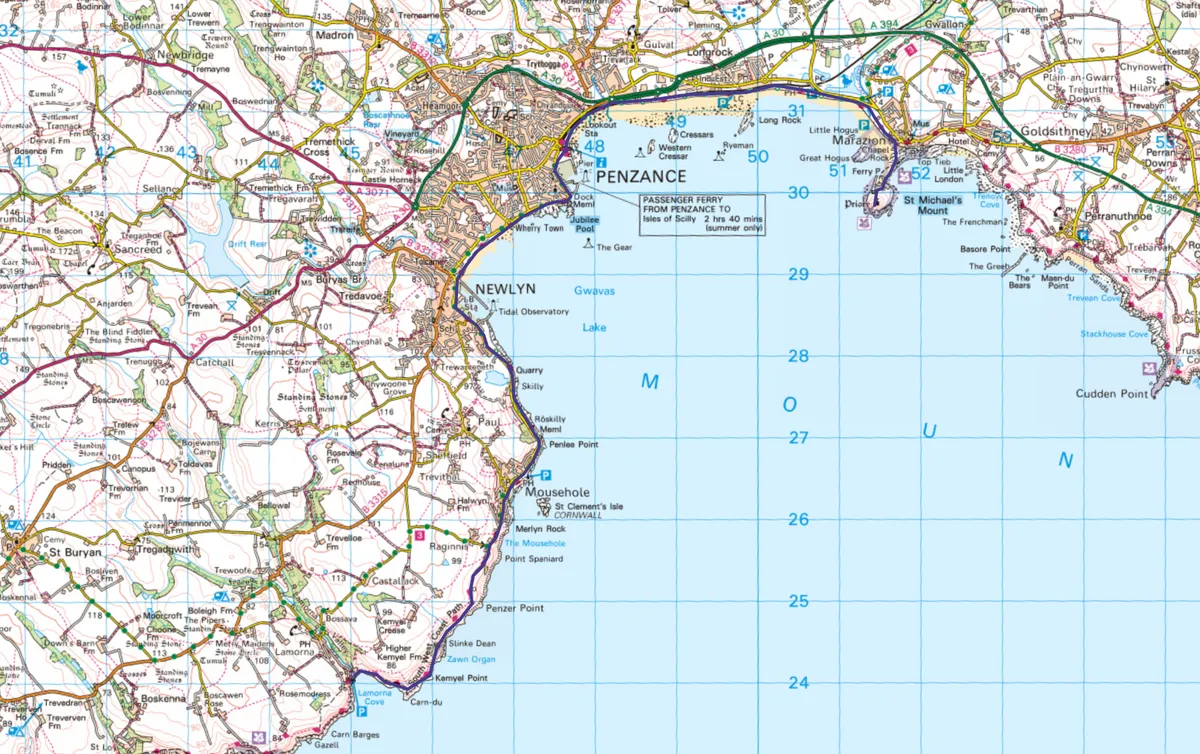This walk from Lamorna to Marazion offers a tempting tropical cove, one of the prettiest fishing villages in the UK and a chance to explore an iconic Cornish heritage site, St Michael’s Mount.
This is a particularly varied stretch of the 630-mile South West Coast Path, a route originally walked by coastguards patrolling for smugglers. Since 1978, it’s offered continuous access along the south-west peninsula, from Minehead in Somerset to Poole in Dorset.
Follow our nine-mile walking route with a plotted OS map from Lamorna to Marazion and St Michael's Mount in Cornwall.
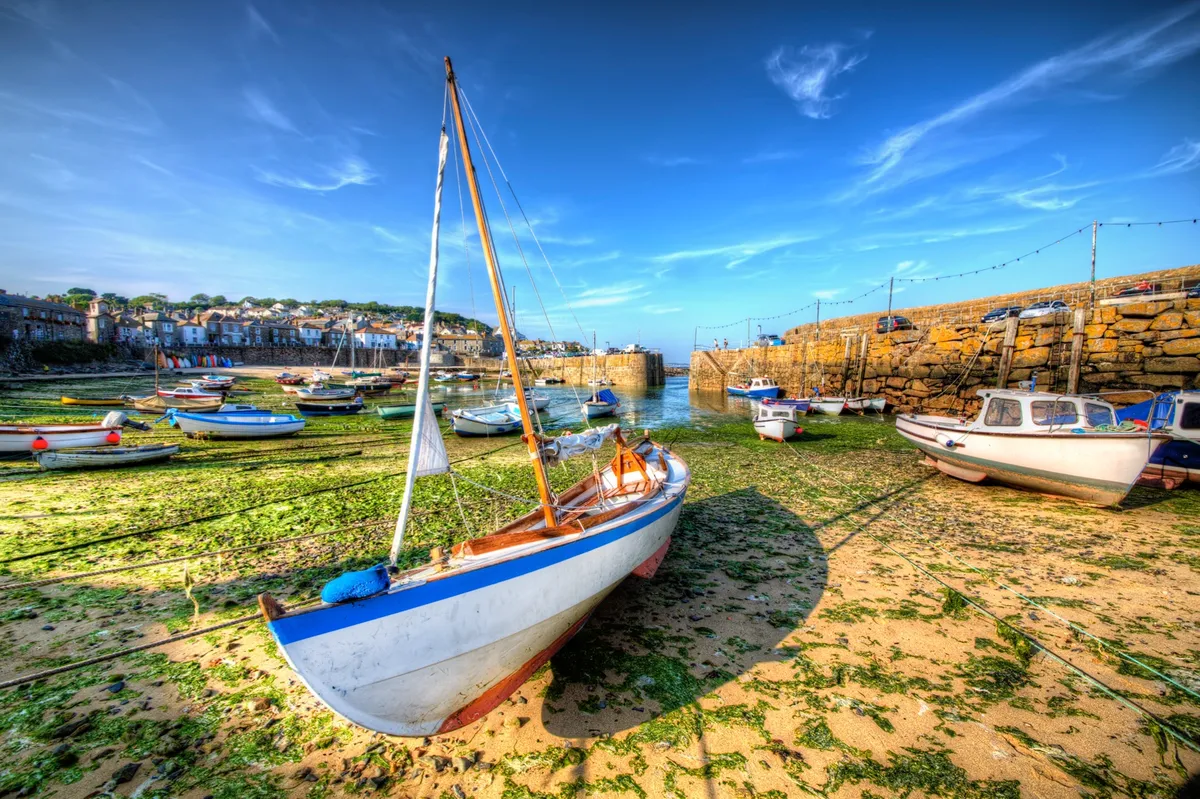
Lamorna Cove to St Michaels Mount walk
1. Lamorna Cove
Set off from Lamorna Cove, once a hub for artists who were drawn here by the curious quality of the light. Lamorna’s pub, The Wink, alludes to the cove’s smuggling history. The wink would let people know you were free trading for such things as brandy, lace and salt. Inns like these were known as Kiddlywinks – places where labourers received beer instead of wages, and stronger stuff was often available under the counter in unlabelled bottles.
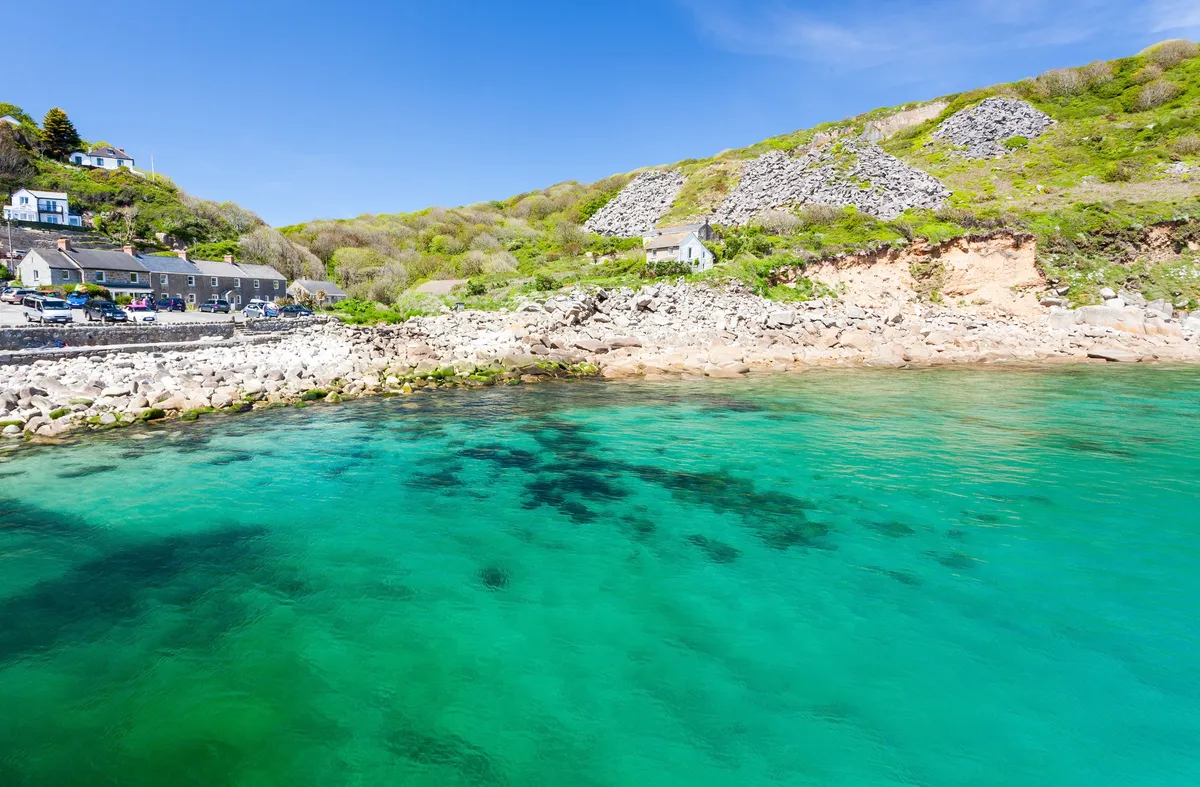
Walk left around the bay and follow the South West Coast Path signs, marked with an acorn, bearing right past the granite quarry on a steep path. Keep an eye out for seals and basking sharks, which shouldn’t be hard to spot in the clear water.
At all times of year, you’re likely to be surrounded by yellow gorse – as the phrase goes: when gorse is out of flower, kissing is out of season. In late spring, the cliffside will be ablaze with wildflowers: paper white ox-eye daisies, bright yellow cat’s ear and bird’s foot trefoil, clusters of blue-purple sheep’s bit and great swathes of pearly pink thrift.
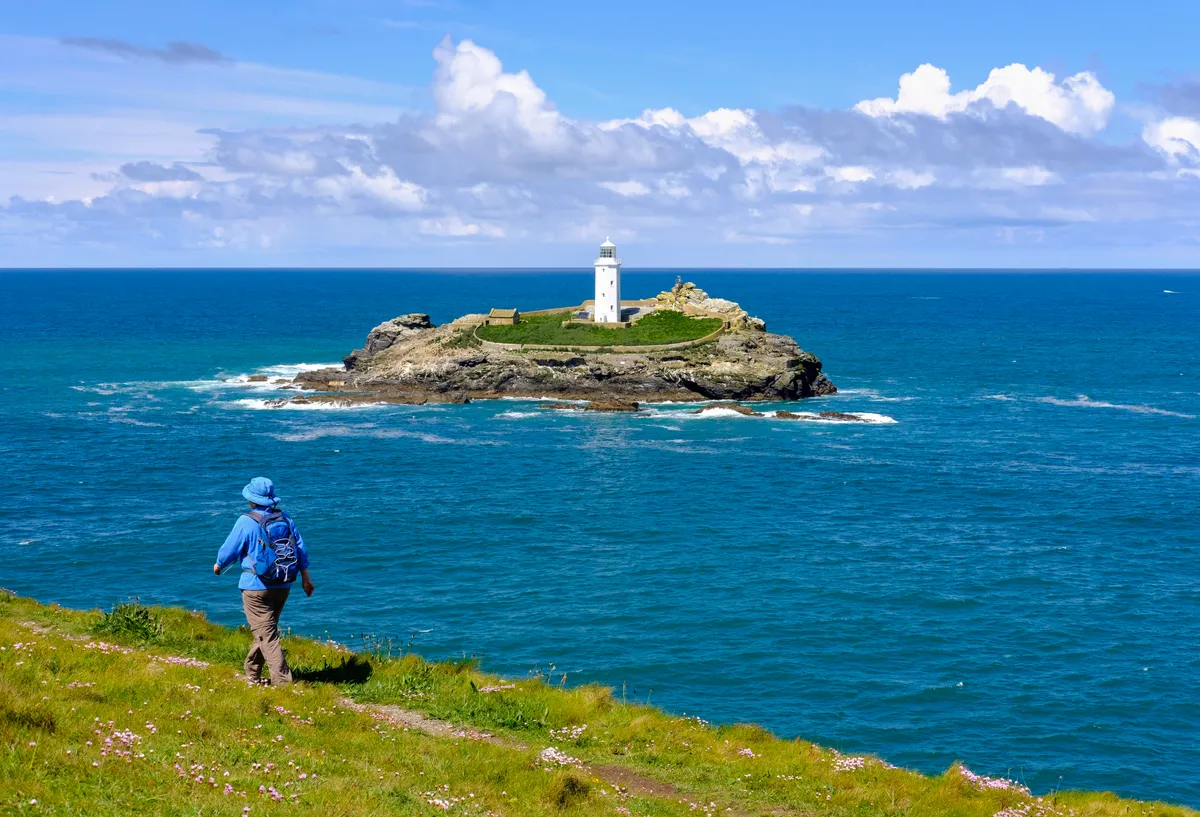
2. Mousehole
Pass by Kemyel Crease Nature Reserve, and after a few steep climbs, you’ll come to Mousehole, an enchanting tangle of narrow streets and cottages that Dylan Thomas described as “the prettiest village in England”.
Mousehole is famous for its stargazey pie – in the 16th century, the villages were starving as winter storms battered the port. A local lad called Tom Bawcock braved the gale and brought back a haul of seven types of fish. His heroic feat is celebrated every 23 December, Tom Babcock’s Eve, in a pie with fish heads sticking out through the pastry crust.
Leave enough time to seek out driftwood trinket shops, pint-sized houses and quirky gardens among Mousehole’s narrow streets.
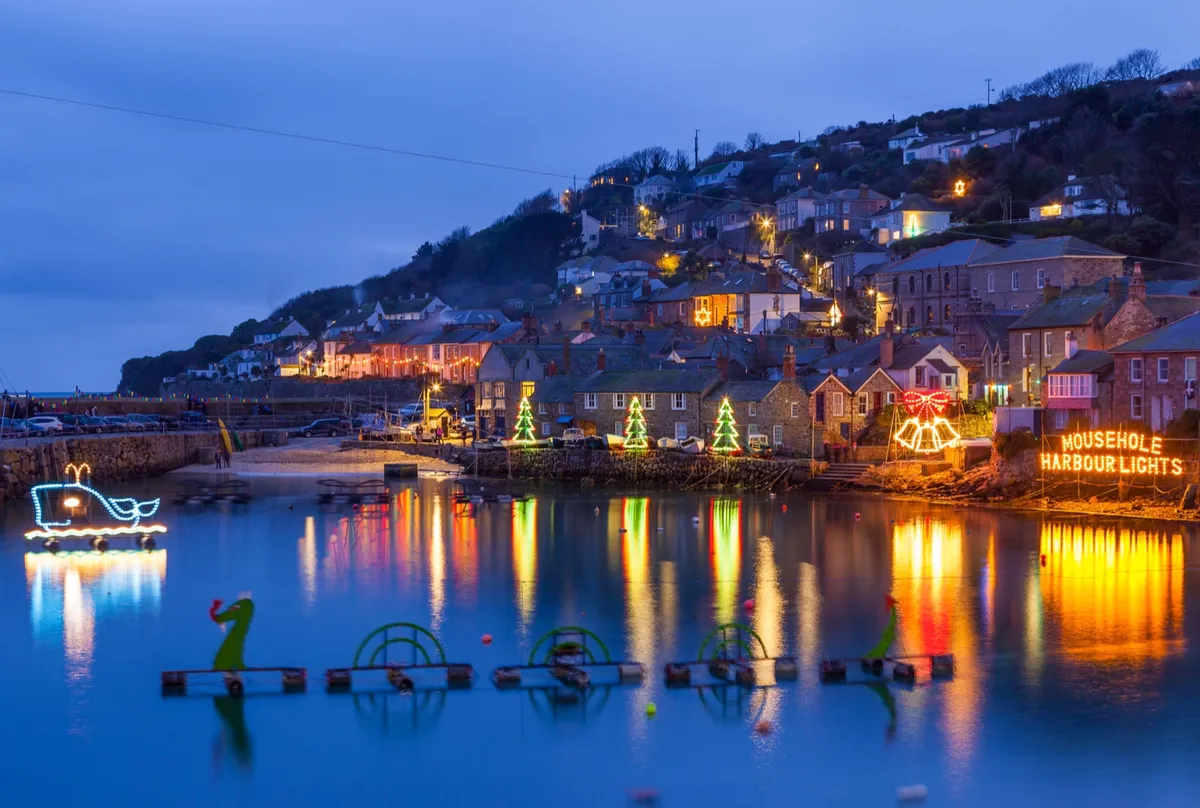
3. Newlyn
Continue towards Newlyn, picking up a tarmac path. When you reach a post marked ‘Penzance 2m’, bear right on to a concrete path, then climb back up to the road as you enter Newlyn. This port was both the home of the Newlyn School of Art, the Cornish equivalent of the impressionists, and one of the largest fishing fleets in the country. Apparently, the town had three things going for it – good light, cheap living and cheap models. The artists’ paintings often chronicled life in a working fishing village.
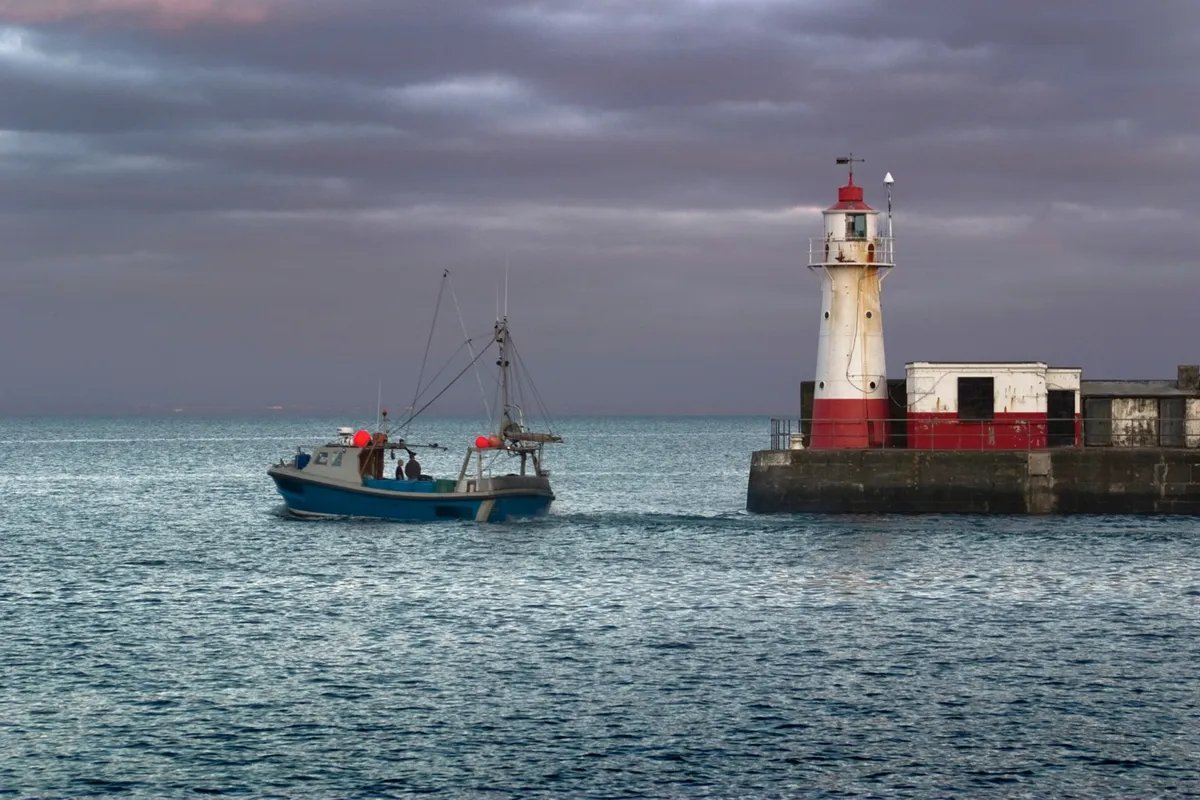
Cross the road opposite the Royal National Mission to Deep Sea Fishermen, bearing to the left of the building, then right over a stone bridge and right along the road. You now come to a stretch of promenade through the outskirts of Penzance. Look out for the art deco Jubilee Pool, a triangular lido designed in 1930s to celebrate King George V’s Silver Jubilee.
4. Marazion and St Michael’s Mount
Located 366m (1,200ft) off the coast and linked by a granite causeway, St Michael’s Mount is well worth a visit. At low tide, you can follow in pilgrims’ footsteps across the causeway. At high tide, boats putter between Marazion and the island.
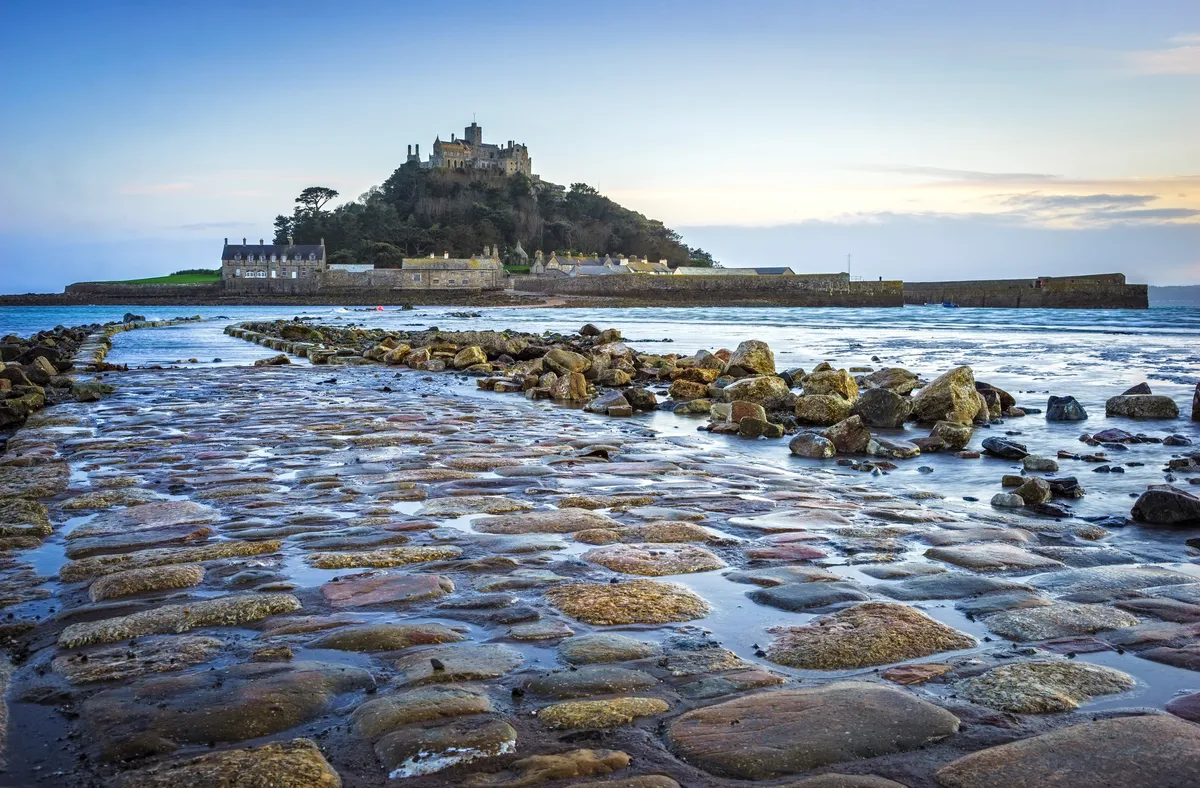
In 1727, the Mount was a thriving port and, at its peak, had a population of around 300. Today, all the residents of Elizabeth Terrace, the row of houses facing Marazion, work for the estate with jobs from boatman to mechanic, gardener to handyman. Marvel at the castle’s displays of antique weaponry, exquisitely bound books and 15th-century stained glass window.
As you walk back to the boat, look out for the Giant’s Well – legend has it a giant called Cormoran once lived on the Mount and he used to wade ashore to feast on cows and sheep. A local boy named Jack rowed to the island and secretly dug a deep pit while the giant slept. When the sun rose, he blew a horn and the angry giant staggered down the hillside and plummeted into the pit.
Lamorna Cove to St Michael's Mount map
Lamorna Cove to St Michael's Mount walking route and map
